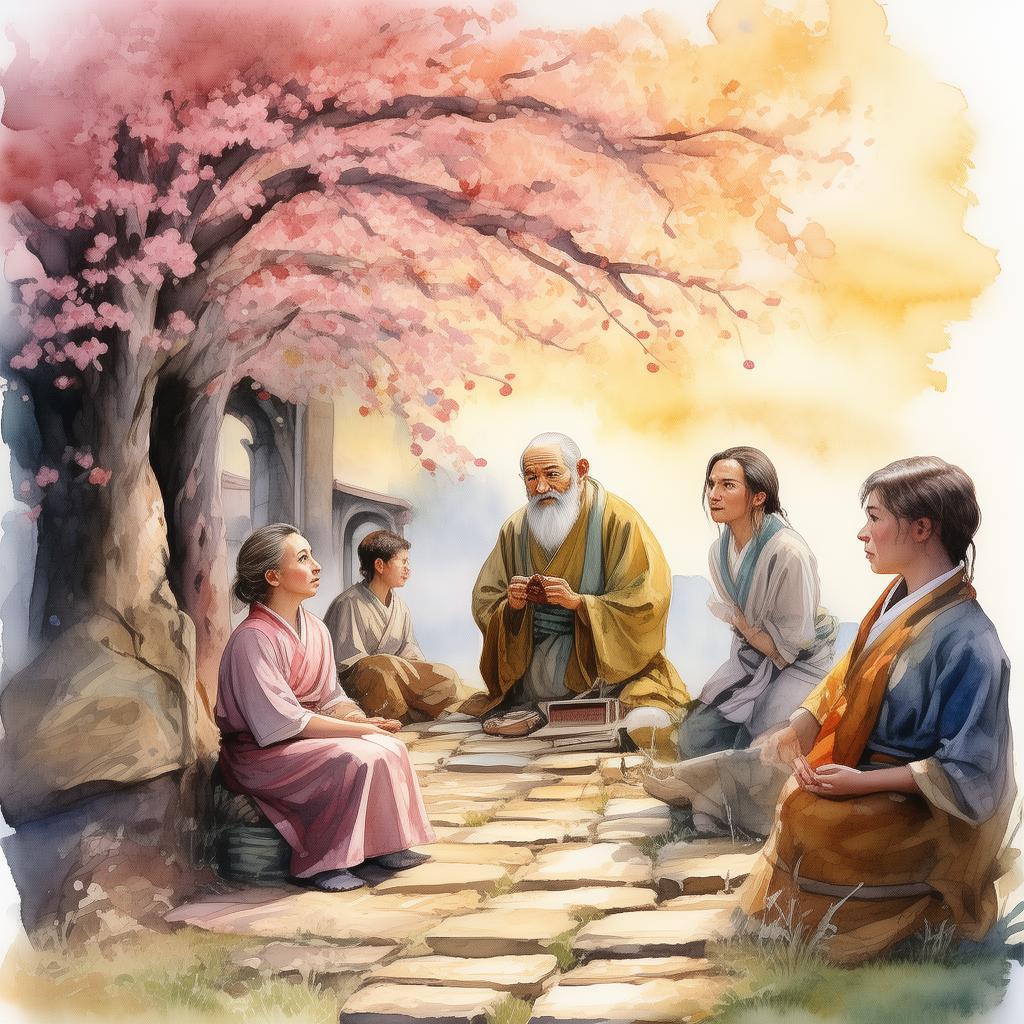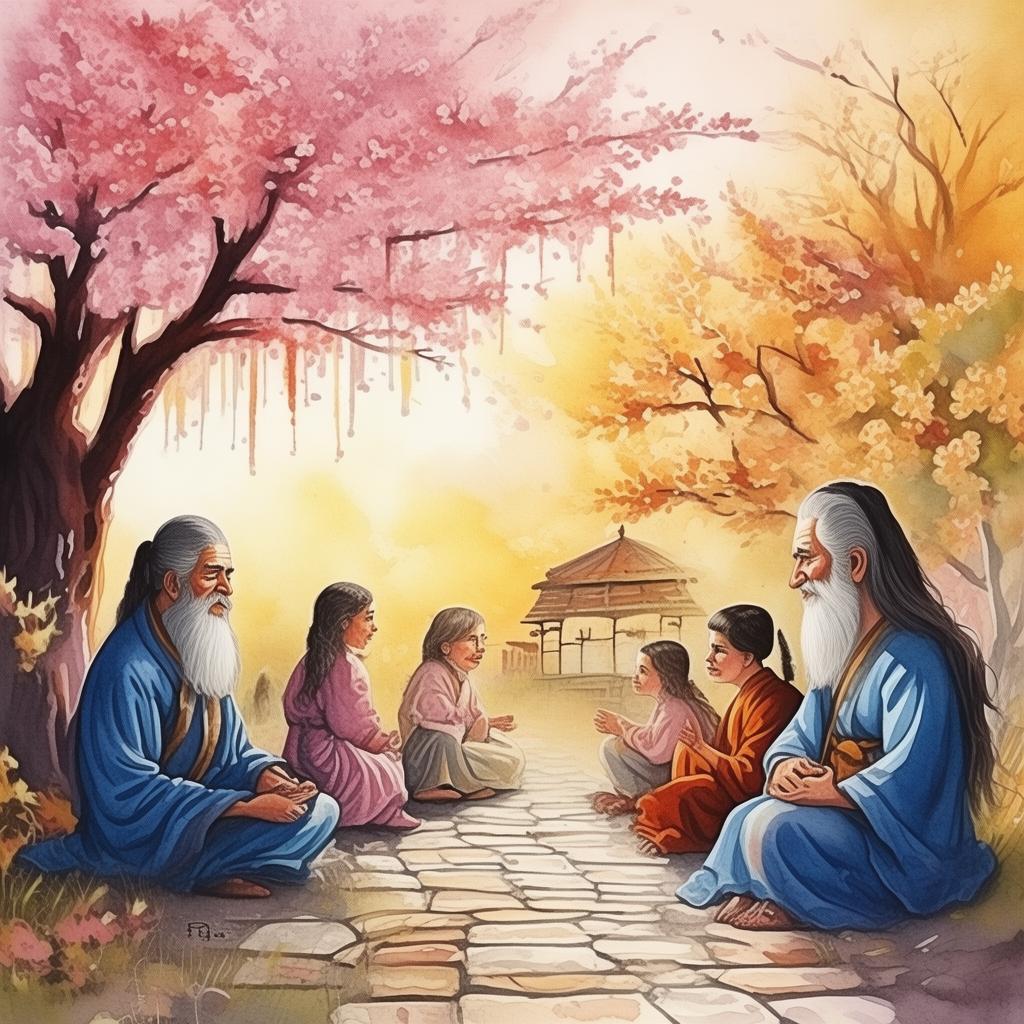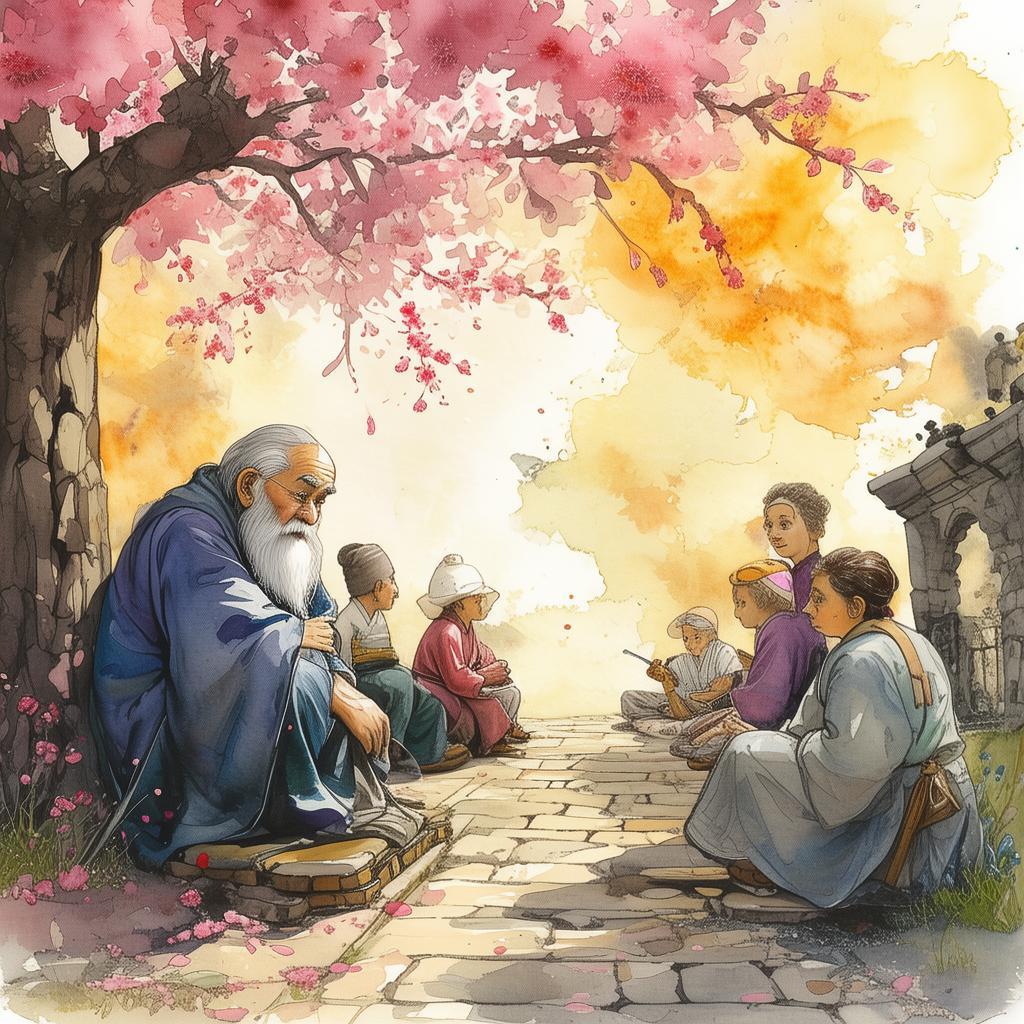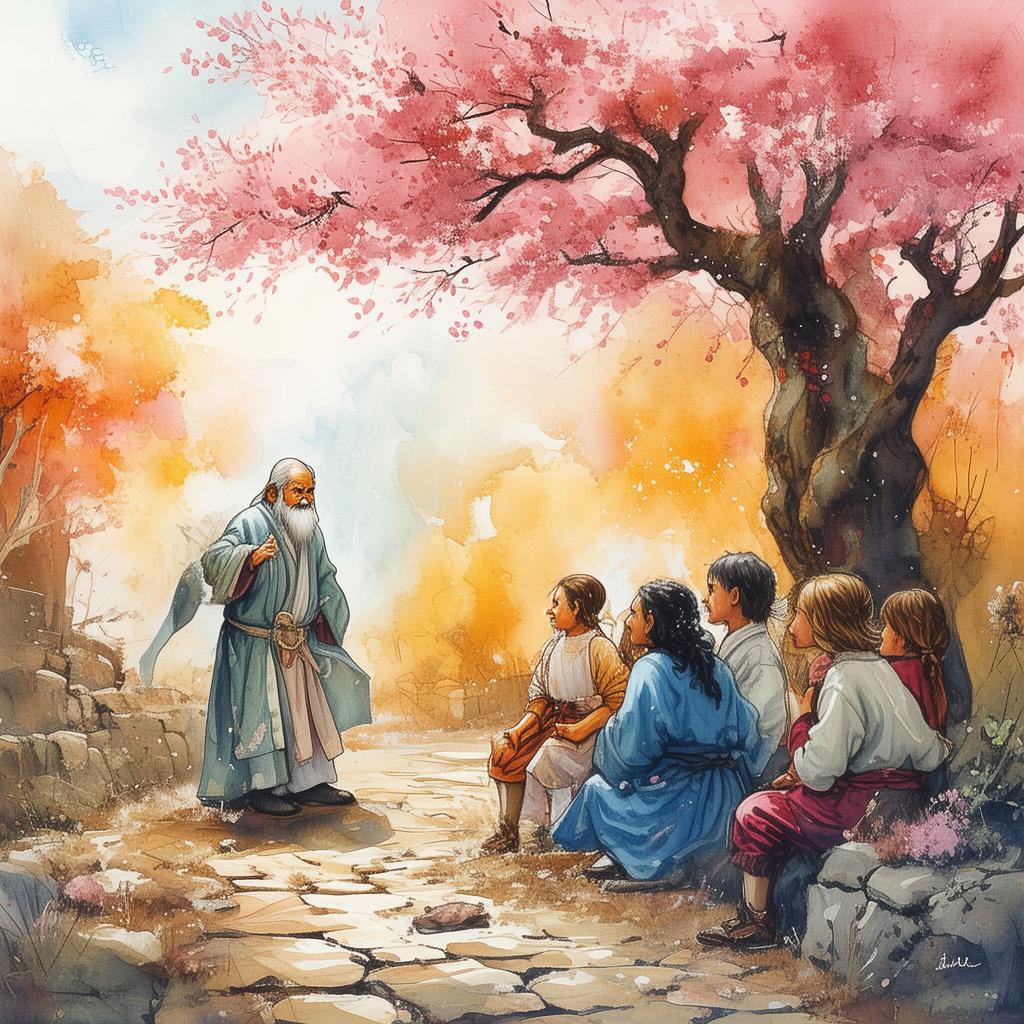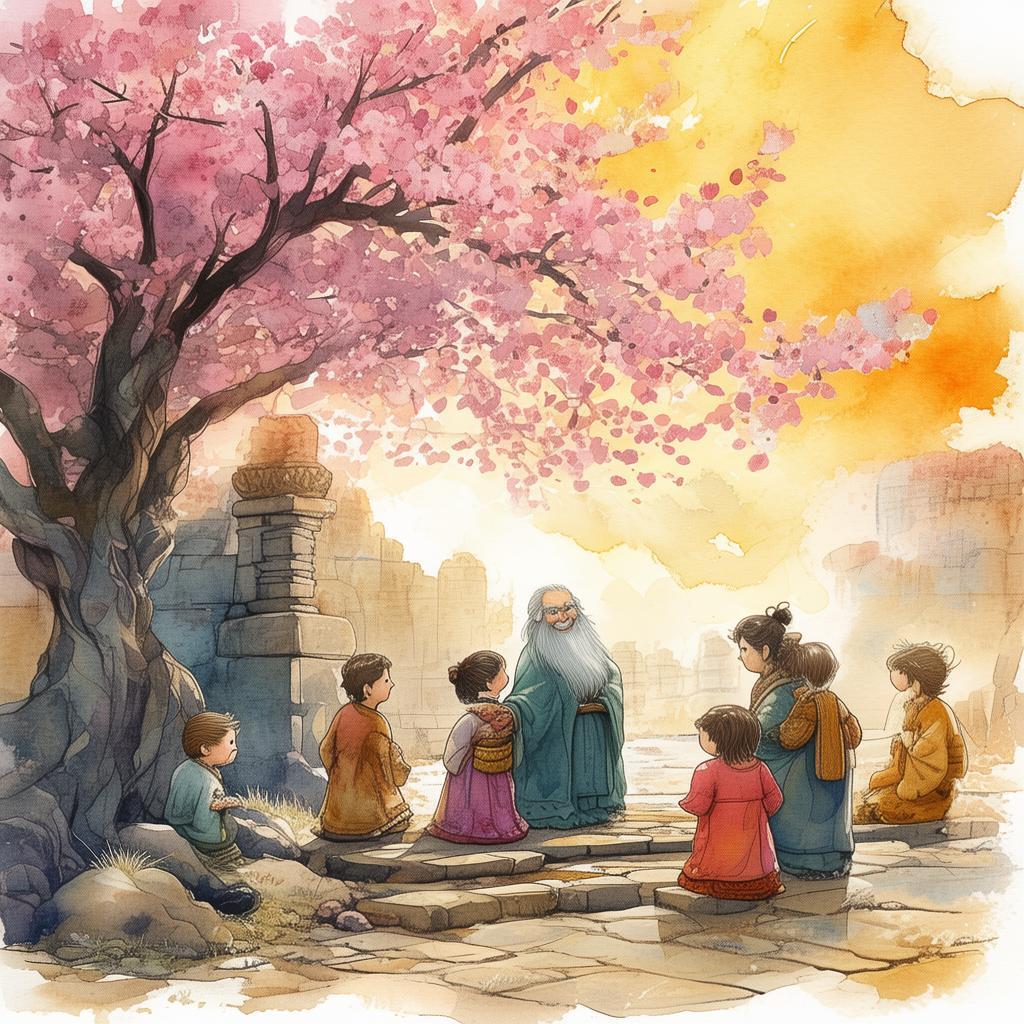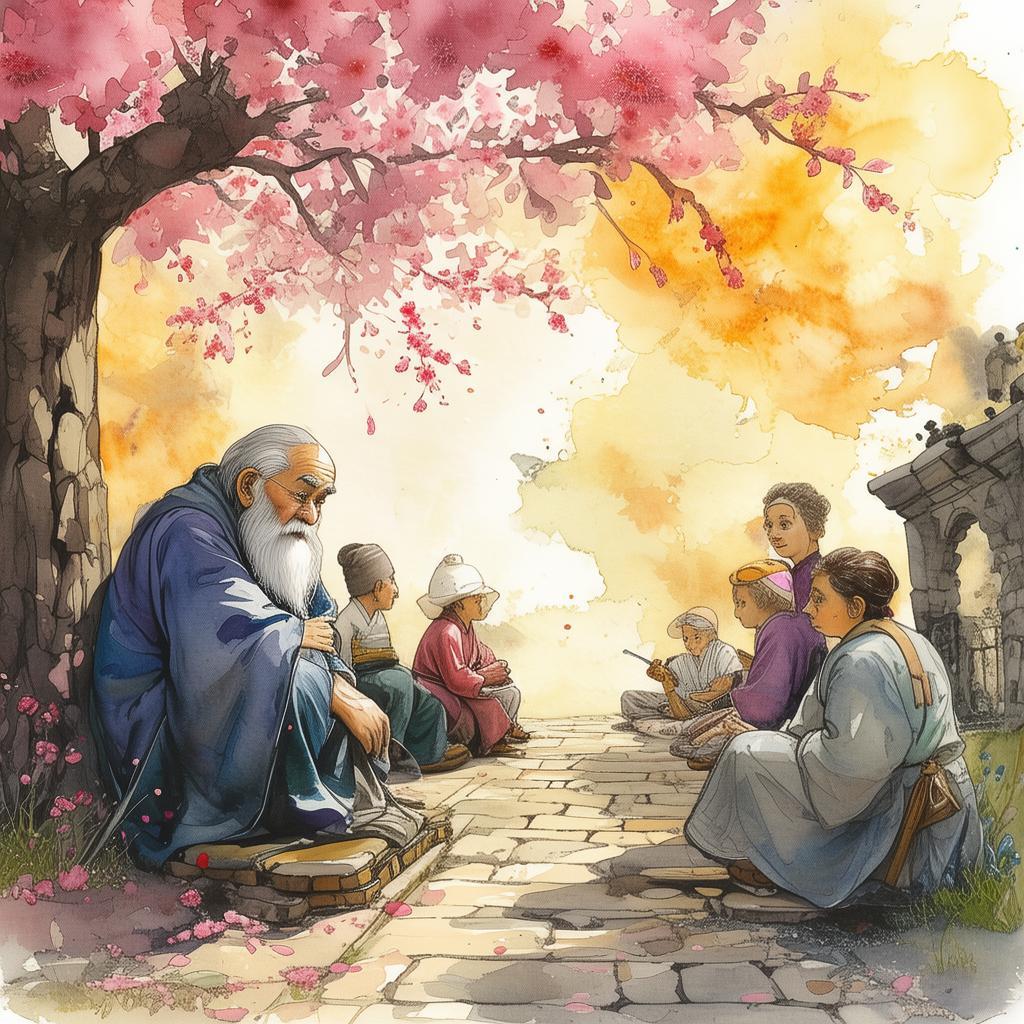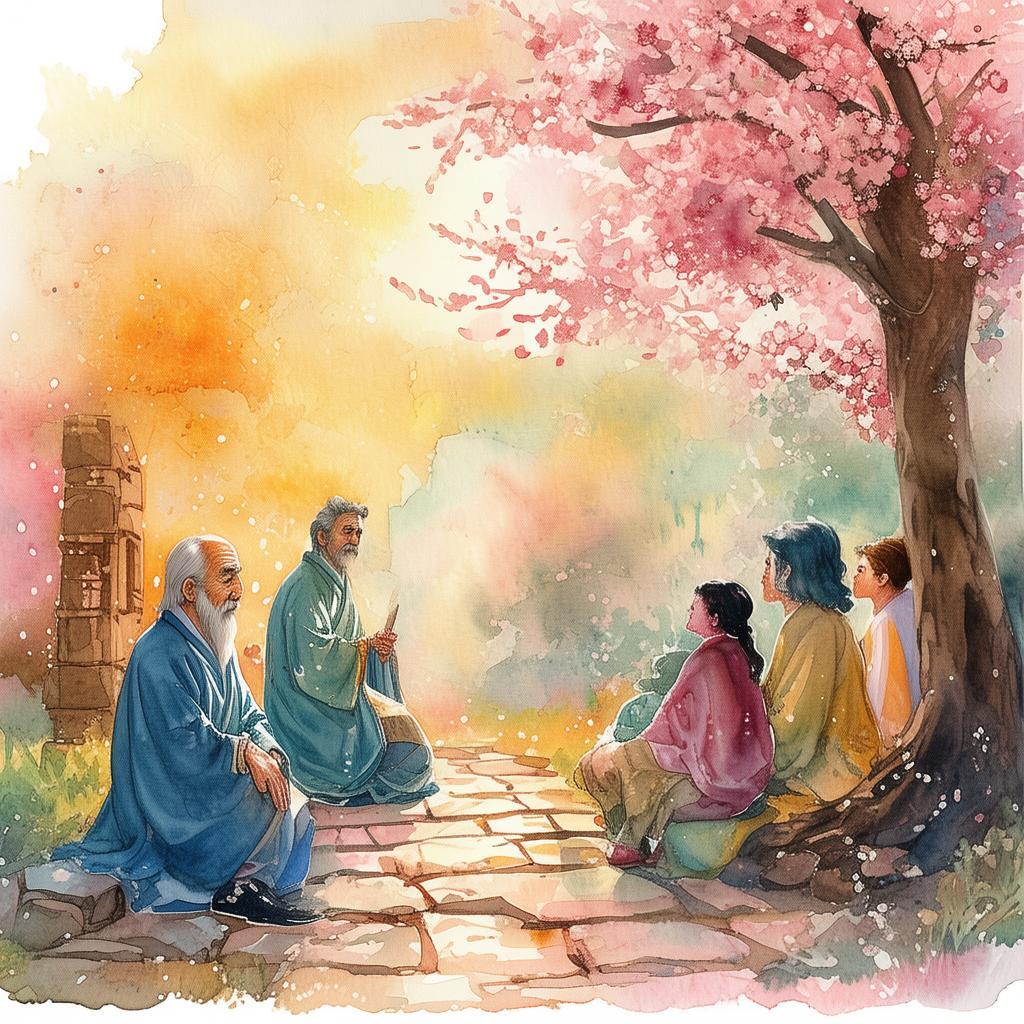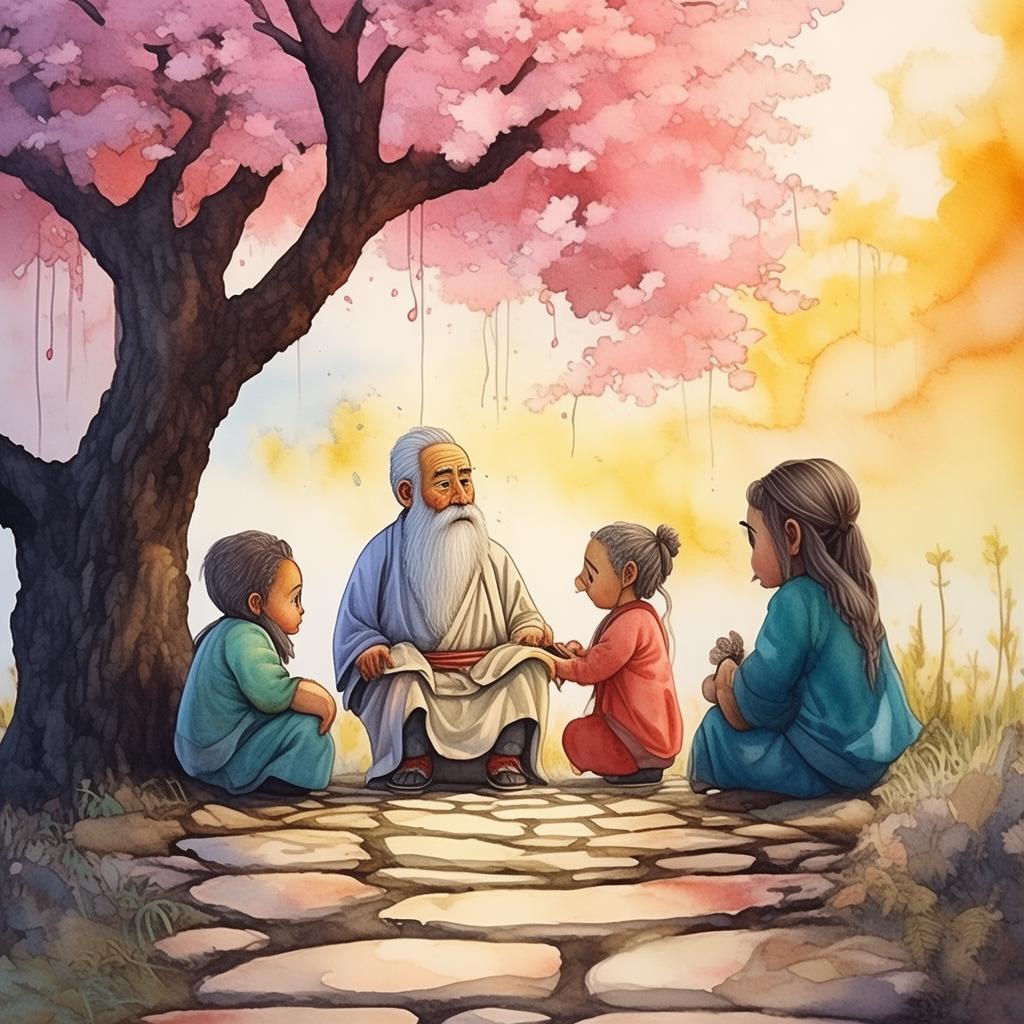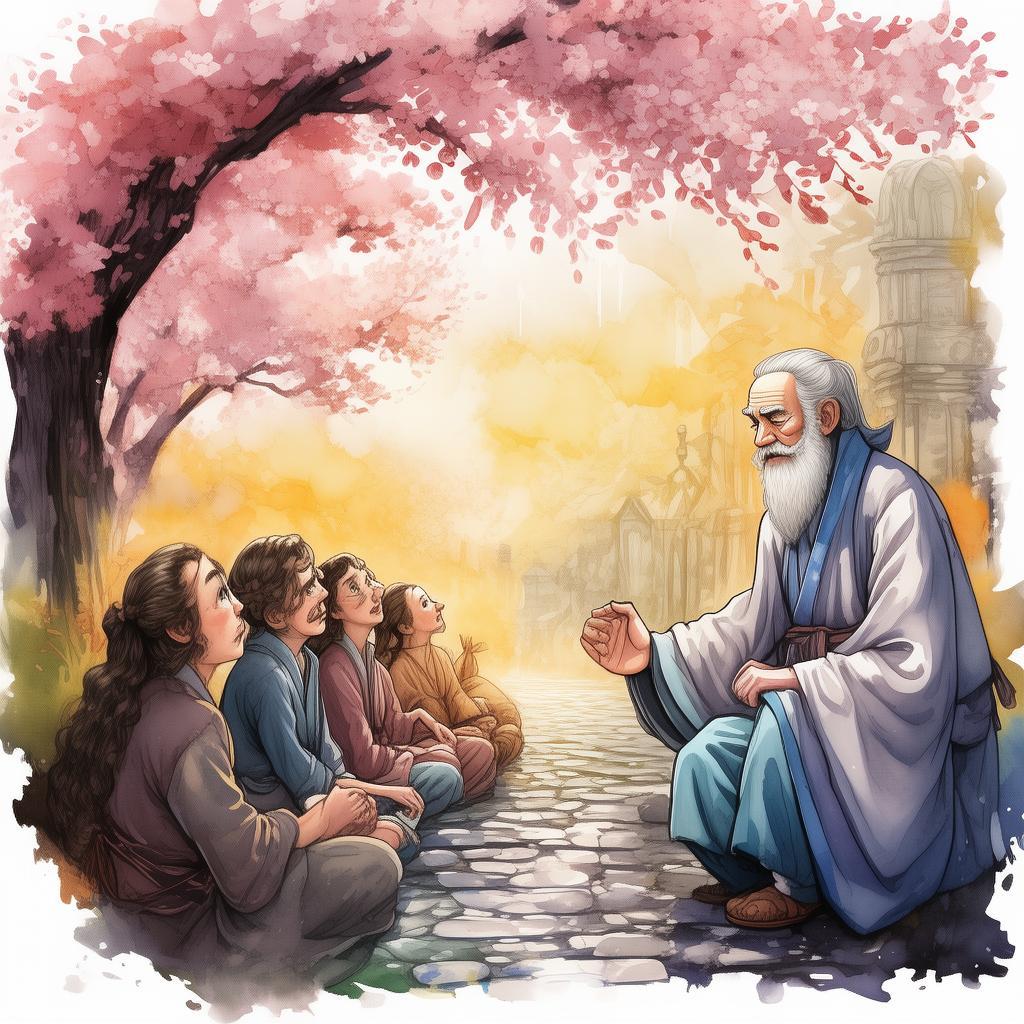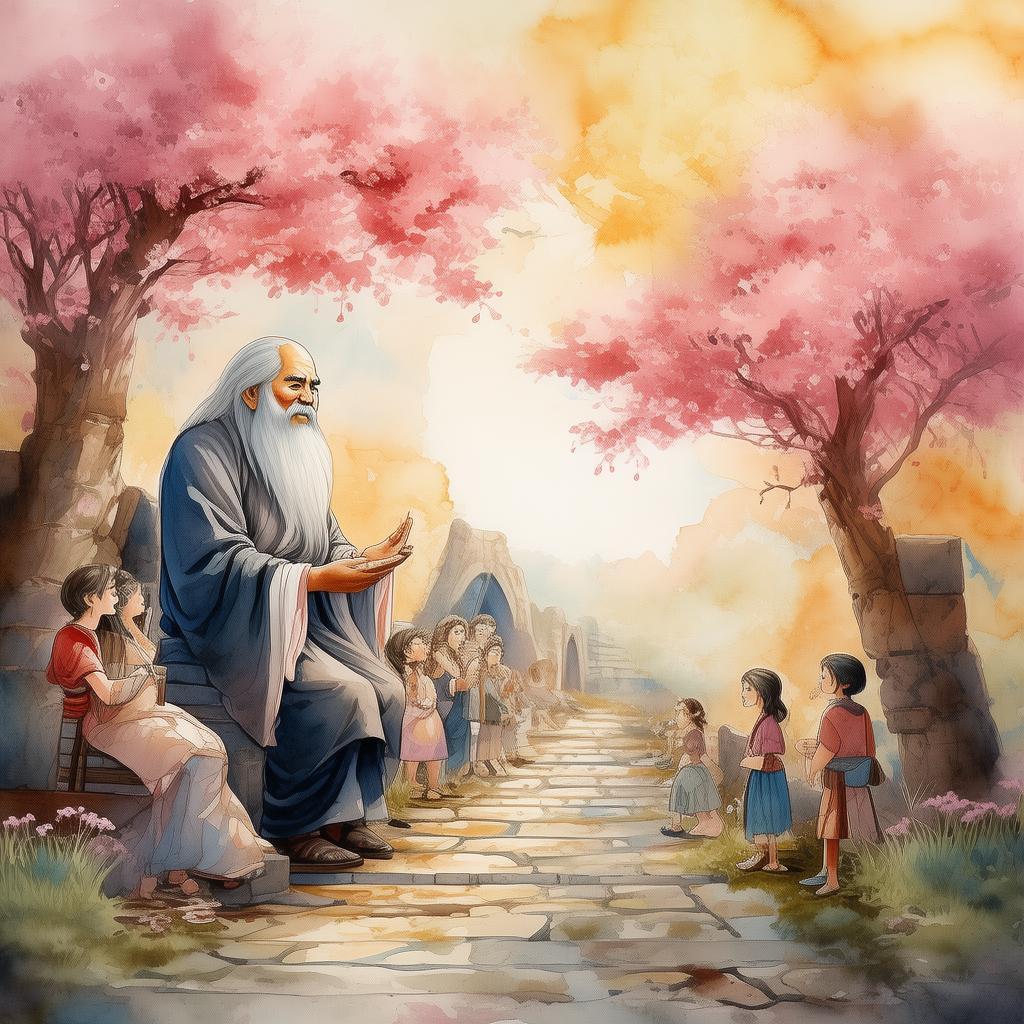The Parodied Philosophers' Retreat: A Stolen Quest
In the heart of a quaint village nestled between rolling hills and whispering woods, there stood an ancient inn known as the Retreat of the Parodied Philosophers. This was no ordinary retreat; it was a gathering place for the most notorious philosophers of their time, those whose ideas were so radical that they were often mocked and parodied.
One such retreat was to take place that year, a gathering of minds to discuss the nature of wisdom and the pursuit of knowledge. The philosophers were to be given a quest to test their intellects and their beliefs. The quest was to find the fabled "Pill of Enlightenment," a mythical object said to grant profound wisdom to its bearer.
The retreat was abuzz with excitement as the philosophers arrived, each carrying their own interpretations of wisdom. There was Confucius, the advocate of moral virtue and social harmony, and Socrates, the relentless seeker of truth, always questioning. Then there was the enigmatic Taoist Laozi, who believed in the harmony of the Tao, and the skeptical Epicurus, who sought pleasure and the absence of pain.
As the quest was announced, the air was thick with tension and anticipation. Each philosopher was given a clue, a riddle that would guide them on their journey. Confucius pondered the riddle deeply, while Socrates questioned everything, Laozi remained serene, and Epicurus sought to find pleasure in the challenge.
The quest began in the village square, where the clue was a simple yet enigmatic message: "Seek not in the obvious, for wisdom is hidden in plain sight." The philosophers set off, each on their own path, but as they ventured deeper into the woods, they soon realized that the path was not as clear as they had hoped.
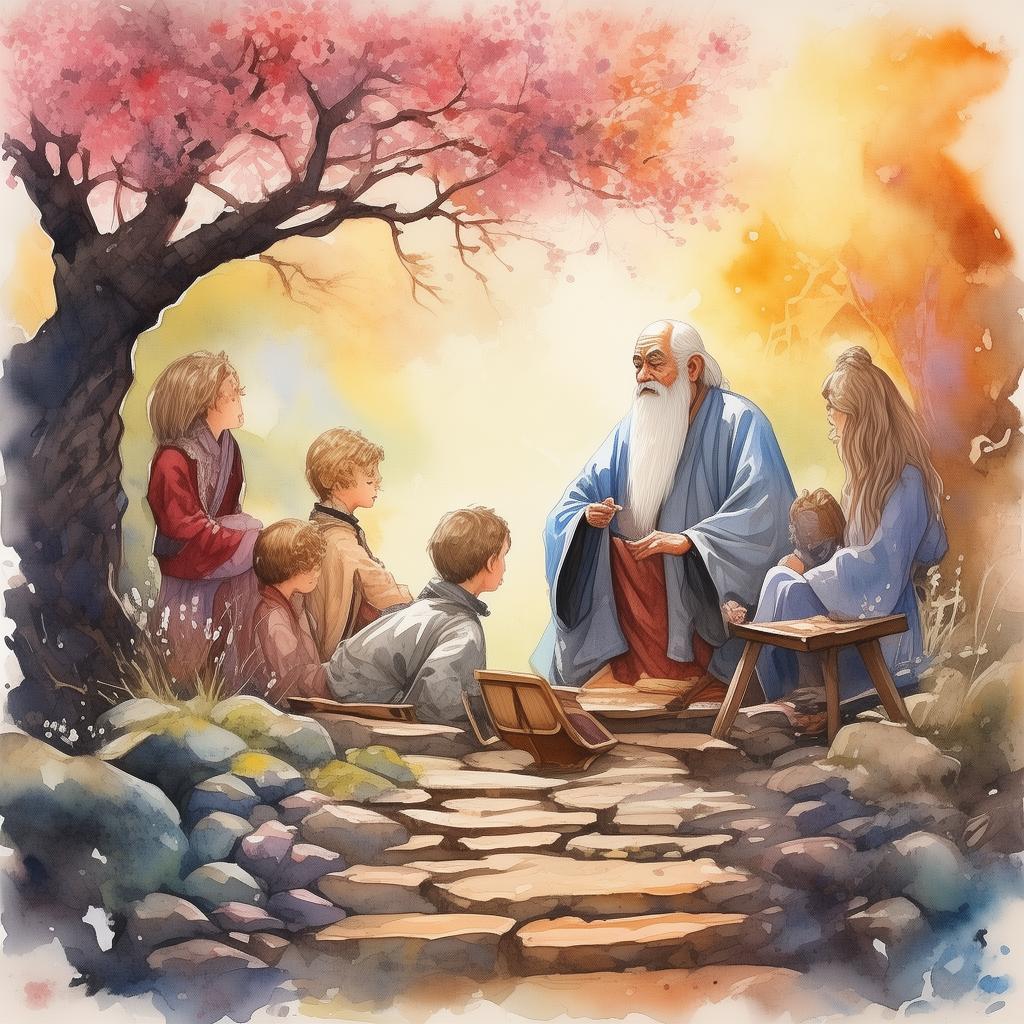
It was then that a mischievous trickster named Qi Baishi appeared, a character often parodied in the retreats. He claimed to have the answers to their riddles but only if they agreed to a series of challenges. The philosophers, intrigued by the trickster's claims, agreed to the challenges, little knowing that they were stepping into a web of deception.
The first challenge was to cross a treacherous bridge that swayed with every step. Confucius, with his strong moral compass, was the first to attempt the crossing. Socrates, ever the critic, stood by, his eyes wide with concern. Laozi watched from the side, his demeanor unchanged, while Epicurus, always seeking pleasure, found the crossing a delightful challenge.
As Confucius reached the middle of the bridge, he stumbled, and the bridge lurched, threatening to collapse. In that moment, Socrates stepped in, using his reasoning to steady the bridge. The others followed, and together they crossed safely to the other side.
The next challenge was to navigate a labyrinth filled with false paths and illusions. Qi Baishi appeared, offering his guidance, but Socrates was skeptical. "Why should we trust a trickster?" he asked. Laozi, however, saw the challenge as an opportunity for enlightenment, and Epicurus saw it as a chance for a good laugh.
As they ventured deeper into the labyrinth, the philosophers encountered various illusions, each testing their understanding of truth and perception. Confucius, faced with a vision of a utopian society, was tempted but remained steadfast in his beliefs. Socrates, with his sharp wit, saw through the illusion and guided them forward. Laozi, ever the Taoist, found harmony in the chaos, and Epicurus found humor in the situation.
The final challenge was to solve a riddle that would reveal the location of the Pill of Enlightenment. Qi Baishi presented them with a riddle that was as cryptic as it was profound: "I am not alive, yet I grow; I don't have lungs, but I need air; I don't have a mouth, yet water kills me. What am I?"
Confucius pondered the riddle, considering the virtues of growth and the importance of air and water. Socrates questioned everything, seeking the deeper meaning. Laozi saw the riddle as a reflection of the Tao, and Epicurus saw it as a riddle to be solved, not to be pondered.
It was then that they realized the answer was not in the riddle itself, but in the journey they had undertaken. The Pill of Enlightenment was not an object but the experience they had shared, the wisdom they had gained, and the lessons they had learned.
As they returned to the Retreat of the Parodied Philosophers, the philosophers held a solemn meeting. They realized that the true wisdom was not in the knowledge they possessed, but in the unity they found when they worked together. Confucius, Socrates, Laozi, and Epicurus, once divided by their differing philosophies, now stood as one, their beliefs complementing each other.
The Retreat of the Parodied Philosophers had revealed a profound truth: wisdom is not found in the pursuit of knowledge alone, but in the journey of understanding, the unity of diverse ideas, and the acceptance of the unknown. And so, the retreat ended not with a stolen quest, but with a stolen lesson, a lesson that would resonate through the ages.
✨ Original Statement ✨
All articles published on this website (including but not limited to text, images, videos, and other content) are original or authorized for reposting and are protected by relevant laws. Without the explicit written permission of this website, no individual or organization may copy, modify, repost, or use the content for commercial purposes.
If you need to quote or cooperate, please contact this site for authorization. We reserve the right to pursue legal responsibility for any unauthorized use.
Hereby declared.
